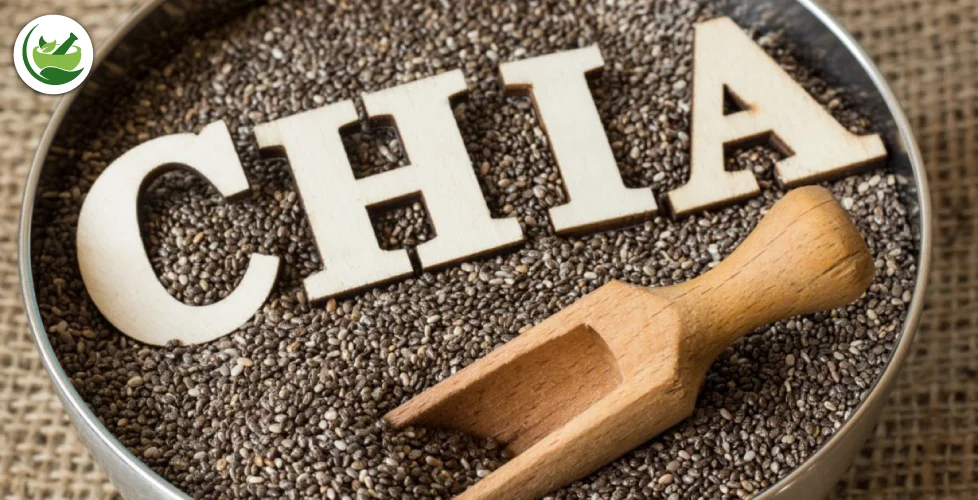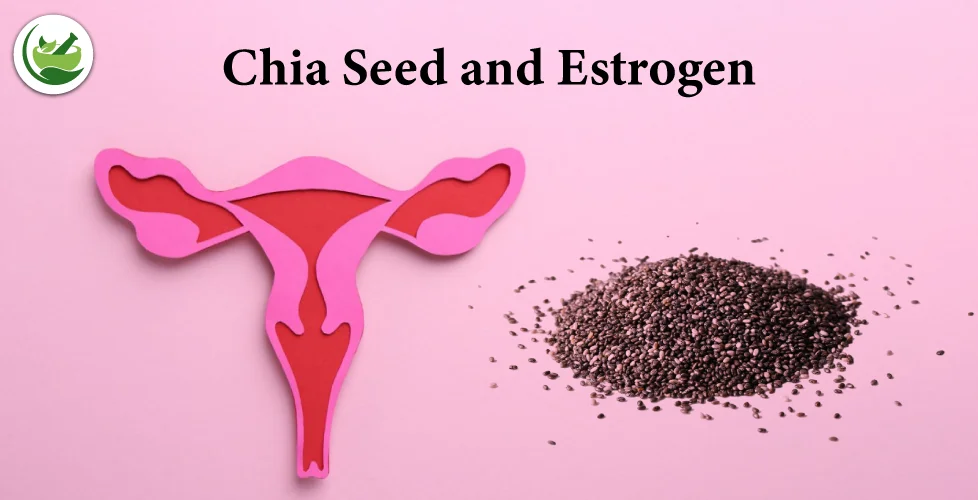Chia seeds, tiny black seeds from the plant Salvia hispanica, have gained popularity as a superfood. They are packed with nutrients, including omega-3 fatty acids, fiber, protein, and various essential minerals. Recently, there has been growing interest in the potential impact of chia seeds on estrogen levels and women’s health. This blog explores the benefits and possible implications of chia seeds for estrogen balance and overall well-being.
Related blog 10 Proven Ways on How to Use Chia Seeds to Lose Belly Fat
What are chia seeds?
Chia seeds have long been valued for their nutritional benefits. As interest in holistic health and natural remedies grows, so does curiosity about how chia seeds might influence hormonal health, particularly estrogen. Estrogen is a crucial hormone in women’s health, impacting everything from menstrual cycles to bone density. This blog will delve into the connection between chia seeds and estrogen, exploring the benefits and potential impacts on women’s health.
Related blog How long do chia seeds last? Can chia seeds go bad?

Nutritional Profile of Chia Seeds:
| Nutrient | Amount per 28g (1 oz) | % Daily Value (DV) |
|---|---|---|
| Calories | 137 | 7% |
| Fiber | 11g | 44% |
| Protein | 4g | 8% |
| Fat | 9g | 14% |
| Omega-3 | 4.9g | – |
| Calcium | 177mg | 18% |
| Iron | 1mg | 5% |
Related blog From Omega-3s To Antioxidants: Comparing The Health Benefits Of Hemp And Chia Seeds
The Role of Estrogen in Women’s Health
Estrogen is a vital hormone in the female body, playing a significant role in reproductive health, bone density, and cardiovascular function. Balanced estrogen levels are crucial for overall well-being.
How Chia Seeds Affect Estrogen Levels
Chia seeds do not contain estrogen but have compounds that can influence estrogen activity in the body:
- Phytoestrogens: Chia seeds contain lignans, a type of phytoestrogen that can mimic or modulate the hormone’s activity.
- Fiber Content: The high fiber content in chia seeds can help regulate hormone levels by supporting digestive health and aiding in the elimination of excess hormones.
Benefits of Chia Seeds for Women’s Health
Chia seeds are a nutritional powerhouse, offering numerous benefits specifically tailored to women’s health. From hormonal balance to bone strength and cardiovascular support, these tiny seeds pack a significant punch in promoting overall well-being.
Hormonal Balance
- Phytoestrogens: Lignans in chia seeds may help balance estrogen levels, potentially alleviating symptoms of menopause and PMS.
- Fiber: Helps in the regulation of blood sugar levels and supports hormonal balance.
Related blog Chia Seeds PCOS Benefits: Should You Add Them to Your Diet?
Bone Health
- Calcium and Magnesium: Essential for maintaining bone density, particularly important for postmenopausal women.
- Omega-3 Fatty Acids: Help reduce inflammation and support bone health.
| Nutrient | Importance for Bone Health |
|---|---|
| Calcium | Vital for bone strength and density |
| Magnesium | Supports calcium absorption and bone structure |
| Omega-3 | Reduces inflammation, promotes bone health |
Cardiovascular Health
- Omega-3 Fatty Acids: Help lower cholesterol levels and reduce the risk of heart disease.
- Fiber: Aids in reducing cholesterol and maintaining healthy blood pressure.
Chia Seeds and Estrogen: The Connection
Chia seeds are rich in phytoestrogens, plant compounds that can mimic the effects of estrogen in the body. Phytoestrogens bind to estrogen receptors, potentially influencing estrogen activity. Here’s how chia seeds might impact estrogen levels:

- Phytoestrogens: Chia seeds contain lignans, a type of phytoestrogen. These compounds can have both estrogenic and anti-estrogenic effects, depending on the body’s current hormone levels.
- Omega-3 Fatty Acids: The high levels of omega-3 fatty acids in chia seeds help reduce inflammation and support overall hormonal balance.
- Fiber: Adequate fiber intake supports digestive health, which is crucial for the proper excretion of excess hormones, including estrogen.
Potential Benefits
- Menopausal Symptom Relief: Phytoestrogens may help alleviate hot flashes and other menopausal symptoms.
- Bone Health: Improved estrogen balance can support bone density, reducing the risk of osteoporosis.
- Heart Health: Omega-3 fatty acids contribute to cardiovascular health, which can be compromised during menopause due to estrogen decline.
Potential Impacts
- Estrogen Dominance: In some cases, excessive intake of phytoestrogens might contribute to estrogen dominance, leading to symptoms like bloating, mood swings, and weight gain.
- Hormonal Imbalance: Those with specific hormonal conditions should consult a healthcare provider before significantly increasing phytoestrogen intake.
Potential Risks and Considerations
While chia seeds offer numerous health benefits, it’s essential to consider potential risks:
- Digestive Issues: High fiber content can cause bloating and gas if consumed in large quantities.
- Blood Thinning: Omega-3 fatty acids can have a blood-thinning effect, which may interact with medications like blood thinners.
- Allergies: Though rare, some individuals may be allergic to chia seeds.
Related blog Can Chia Seeds Cause Constipation: Myth Or Reality?
Incorporating Chia Seeds into Your Diet
Chia seeds are a versatile and nutrient-dense addition to any diet, offering numerous health benefits when integrated into daily meals. Here are some simple and delicious ways to incorporate chia seeds into your routine.
Chia seeds are versatile and can be easily added to various dishes. Here are some ideas:
- Smoothies: Blend chia seeds into your morning smoothie for an extra nutrient boost.
- Puddings: Make chia seed pudding by soaking them in almond milk overnight and adding your favorite fruits and sweeteners.
- Baking: Use chia seeds in bread, muffins, and granola bars for added texture and nutrition.
- Salads: Sprinkle chia seeds over salads for a crunchy texture and nutritional enhancement.
- Yogurt: Mix chia seeds into yogurt for a nutritious and filling snack.
Related blog Maximizing Nutrition: Exploring The Benefits Of Chia Seeds In Smoothies
Tips for Consumption
- Start with small amounts and gradually increase to avoid digestive discomfort.
- Mix chia seeds into yogurt, smoothies, or oatmeal.
- Use chia seeds as a thickening agent in recipes for puddings or sauces.
Sample Daily Intake
Incorporating chia seeds into your daily diet can be simple and effective. Here are some practical suggestions for adding this nutrient-rich superfood to your meals.
| Meal | Serving Suggestion |
|---|---|
| Breakfast | Add 1 tablespoon to yogurt or oatmeal |
| Snack | Mix 1 tablespoon in a smoothie |
| Dinner | Use as a topping for salads or soups |
Related blog How long do chia seeds last? Can chia seeds go bad?
Conclusion
Chia seeds can be a valuable addition to a woman’s diet, offering potential benefits for hormonal balance, bone health, and cardiovascular health. However, it’s important to consume them in moderation and be mindful of any potential risks. As always, consult with a healthcare provider before making significant changes to your diet, especially if you have underlying health conditions or are on medication.
By understanding the benefits and impacts of chia seeds on estrogen and overall health, women can make informed choices to support their well-being.






